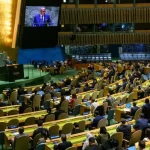The funding round was led by East African venture capital firm African Renaissance Partners, with participation from net-zero focused investor Endgame Capital and climate & poverty focused King Philanthropies.
“This funding will allow us to significantly scale our operations in Ethiopia,” said Kidus Asfaw, co-founder and CEO of Kubik.
The company plans to utilize the funds to increase production capacity, expand its team and market presence in Ethiopia. Additionally, Kubik aims to refine its technology for waste tracking and environmental impact analysis, while also strengthening its network with female waste collectors.
Kunik has already established a plastic upcycling factory in Adama and sources waste through collaborations with the Addis Ababa City Administration and waste management social enterprises. The company has also secured partnerships with construction firms like Pharo Ventures and Cornerstone Development Group.
“We are excited to close our seed funding round with such esteemed investors,” said Kidus. “Their backing validates Kubik’s market potential, our progress to date, and our mission to build a sustainable and affordable future.”
Kubic’s business model addresses the global affordable housing deficit, estimated at over 300 million units, by offering a low-cost, eco-friendly alternative to traditional building materials. With over 40% of construction costs attributed to materials, Kubik innovates by transforming hard-to-recycle plastic waste into building blocks.
“Cement production is responsible for a staggering 8% of global greenhouse gas emissions,” stated Endgame Capital in a press release. “Kunik’s solution presents a significant breakthrough – a more sustainable and affordable building material.”
Looking ahead, Kubik sees immense potential in Africa’s rapidly urbanizing nations, aiming to revolutionize construction practices while tackling plastic waste and promoting climate consciousness.





